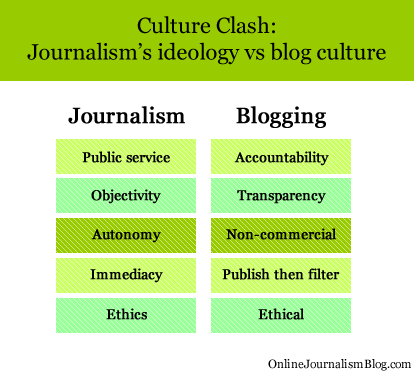Answers to another set of questions around ethics and online journalism, posed by a UK student, and reproduced here as part of the FAQ series:
Do you believe online journalism presents new ethical dilemmas and should have standards of its own?
Yes, I think any changing situation – whether technological or cultural – presents new ethical dilemmas.
But should ‘online journalism’ have a separate code? I don’t see how it can. Where would you draw the line when most journalists work online? Ethical standards are relatively platform-agnostic, but journalists do have to revisit those when they’re working in new environments. Continue reading

